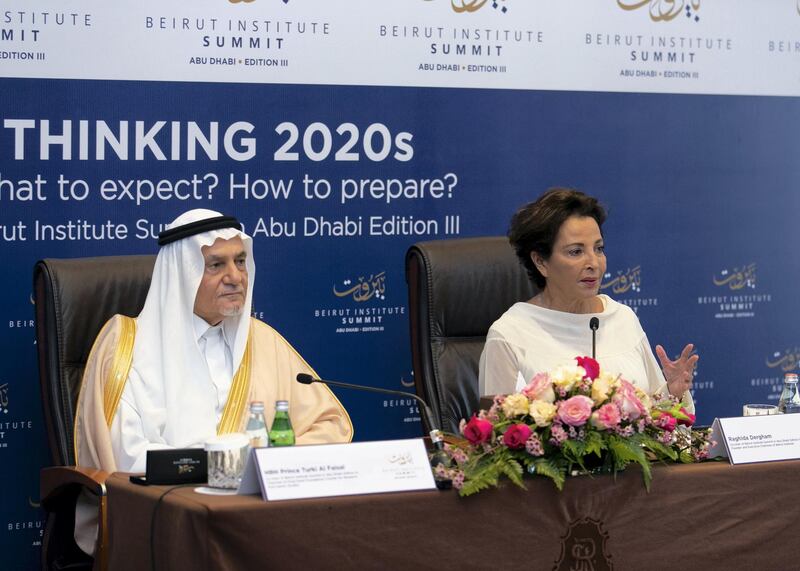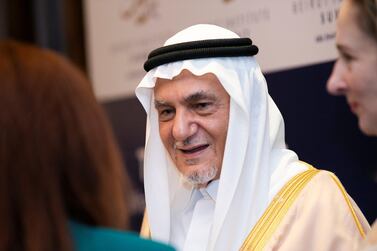The Middle East is a fascinating, if deeply troubled, part of the world at the moment. It continues to be a stage for big-power rivalries and regional competition. There are wars being fought in Syria, Libya and Yemen while Iraq struggles to emerge from one. There is the issue of terrorism, even as sectarian and religious strife threaten to tear apart existing social fabrics.
But the region is also full of hope for a brighter future as the Gulf countries forge different paths for themselves, with the UAE leading the way for the rest of the world on how to build a harmonious society.
Given the contrasting and contradicting narratives to emerge from the region, it is important to understand what the future will look like for these countries – specifically Arab nations – years or decades from now. The Beirut Institute, of which I am the founder and president, will be holding a two-day summit in Abu Dhabi today and tomorrow. The summit will attempt to answer some very difficult questions that are likely to throw up nuanced responses from the 250 Arab and international leaders expected to attend it.
Some of the questions to be tackled include what the future of the Arabian Gulf will look like in the context of maritime insecurity and general volatility in the region. Can the Gulf countries' ambitious plans for reform be realised in the midst of such insecurity? Can Arab dreams coexist with Iranian, Turkish and Israeli ambitions? Are clashes inevitable? These questions are no longer rhetorical in nature but they need addressing.
There is also the question regarding the US role in the region. It is crucial to understand what the US wants and also whether there is clarity in the Arab perspective of the nature of Arab-American relations in changing times – especially given US President Donald Trump's own manner of dealing with the international community.
This will make for an interesting topic of conversation, especially in the light of a re-emerging of Russian influence in the region, including its role in countries such as Syria and Libya. By extension, it is necessary to examine US-Russia relations and how Arab nations are balancing their equations with these two erstwhile Cold War enemies.
Meanwhile, a rising China exerts greater economic influence in the Middle East. How it plans to deal with post-conflict countries will be fascinating to watch.
The summit will also discuss technology, including the issues of innovation, cybersecurity, the circular economy, the Arab region’s stamp on various industries such as fashion, design and architecture.
It goes without saying that some of the discussion will involve Turkey’s continued advancement into north-eastern Syria and the consequences of it, ranging from how the country will look to whether this will lead to another refugee crisis and the future of the Kurds.
However, several larger questions might also arise from this unfolding situation: does Turkish President Recep Tayyip Erdogan genuinely want to take over territory or is he simply looking to improve his popularity at home amid domestic woes? He was certain the US and Russia had given him an amber light, urging him to soften the execution of his invasion and avoid crossing any red lines. However, Mr Erdogan does not understand amber; he only sees the world in red and green and understood it to mean Washington and Moscow would not move to thwart his military operation in Syria. So will his decision drag the Turkish state deeper into the Syrian quagmire? Did Mr Trump decide to withdraw US troops from Syria, knowing this would suit the regional agendas and aspirations of both Turkey and Iran?
After all, both countries harbour visions of exerting their influence and perhaps even expanding their territories over the long term.
And finally: what of the Kurdish ambitions of having their own homeland that spreads across parts of Turkey, Syria, Iraq and Iran?
Most importantly, from the point of view of those attending the Abu Dhabi summit will be a question Arab countries must give serious consideration: how will they counter these grand Iranian and Turkish projects?






